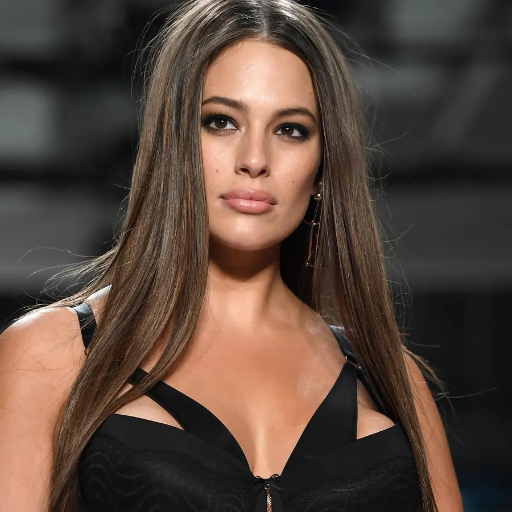This blog post presents a progressive story of Donald Trump by highlighting his evolution from a young entrepreneur with big dreams to his rise in politics which was quite unconventional. To begin, the focus is directed to the man who has become President, his story, and his defining moments and experiences that developed his business skills at a young age. The review then approaches his career in real estate and show business, outlining the fundamentals of his professional growth that would later lead him to a career in politics. Next in the review of the political biography shift focus to the political activities of Donald Trump the sequence of events and the key events that allowed him to become a strong figure in the political arena. Finally, most of the article concerns Donald Trump’s political comeback arguing prospects and techniques to explain why he successfully managed to stay in the public eye. In this blog post, readers will learn about the paths that the current US President has passed, revealing his alp’s complex and quite intriguing personality.
Who Was Young Donald Trump?
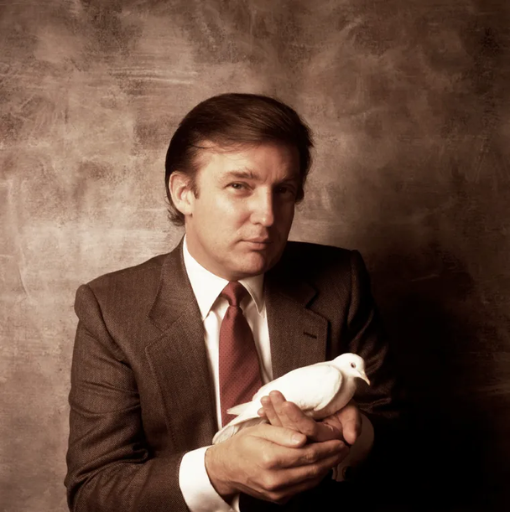
Donald Trump as a child was aggressive and fiercely competitive. He was born on June 14, 1946, into the Trump family as the fourth of five children. His father, Fred Trump, was a successful real estate developer, which provided Donald with a comprehensive understanding of business and real estate. Trump had a disciplined childhood as he went to a military school, New York Military Academy which also instilled in him a competitive mindset. Eventually, they prepared him for his successful career by instilling in him leadership and resilience. Later, he pursued a degree at the Wharton School of the University of Pennsylvania and strengthened his determination to build his father’s real estate business. Young Donald Trump was passionate, highly ambitious, and knew what steps he needed to achieve his goals in the competitive real estate market.
Early Life and Family Background
A real estate career path seemed inevitable for Donald John Trump who was born and raised in such an environment. His father, Fred Trump, had a considerable fortune building middle-income housing in New York City and was a successful real estate developer. Such real estate development was a natural vocation for Donald as it surrounded him at an early age and gave him a unique in-depth into the industry. The family values were strict with an emphasis on discipline and hard work, a lesson that Donald was also taught at the New York Military Academy which is well-regarded for its leadership and responsibility responsibilities. Things were not easy for young Donald, growing up in Queens, however, he got to see and understand the operations of his father’s empire which drove him to work hard to expand the family business and later, start his career in real estate, show business, and eventually politics.
Education and Early Interests
Since I grew up in a family where business, mainly real estate, was the center of everything, such interests arose naturally from a young age. My formal education started at the New York Military Academy where I learned leadership and discipline which is important as it helped in developing my character. Such military training also enabled me to build competitiveness and toughness, which are essential in the business industry. Aspiring for higher education, I went to the Wharton School of the University of Pennsylvania, known for its business programs. At Wharton, I focused on economics and finance, which later, became useful in my plans to expand and diversify my family’s real estate business. This educational background proved useful not only in my business interests in real estate but also in my political and media career in the future.
Influence of Donald Trump’s Father
Fred Trump’s imprint on his eldest son Donald Trump was deep and complex and had a great bearing on his life & career. A real estate developer, Fred showed his son the ropes of the industry which included the value of tenacity, muscle memory, sound investments, and risk when necessary. Some of the aspects that underscore his impact are low-cost methods of construction, benefitting from scope economies in building, and reliance on high levels of occupancy to provide constant cash – all principles of Donald’s business. It is only natural then, that Fred’s strong passion for order and organization coupled with their unwavering discipline, helped to instill the practice of hard work and sharp vision in Donald, elements crucial to making it in the real estate business. These early teachings and technical concepts proved extremely useful as Donald successfully sought and consolidated what they had in the real estate business making him very competitive and aggressive in business, the media, and political endeavors later on.
How Did Young Donald Trump Start His Political Career?
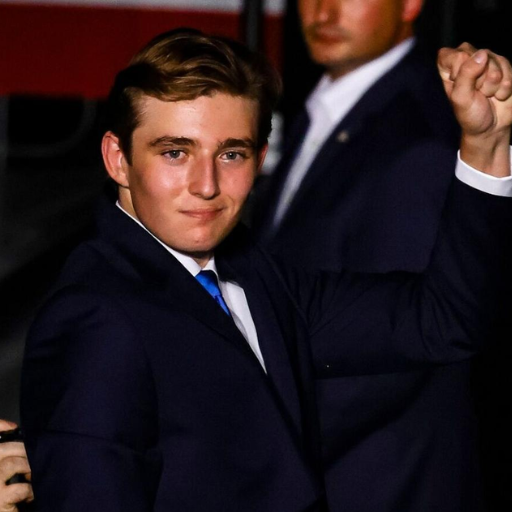
The 1980s turned out to be the decade that saw Donald Trump venturing into politics, it was around this time that he began voicing his political views and meeting relevant political figures. While Trump earned a name as a businessman and a celebrity, there was a shift in the character. He began to explore different paths to broaden his horizons and engage in more political activities. In the beginning, his political endeavors appeared to be loosely organized, however, over time they became manifest through various channels, including advertisement of candidates, engagement with mass media, and participation in political debates. Although he thought of running for office earlier in the two previous decades, 2015 marked the year when he declared his campaign desire. He was popular with entrepreneurs and voters alike; with his modest media presence, he communicated with the electorate plainly and elaborated on his commercial activities. These initial engagements were vital for building relationships that enabled him as a businessman to morph into a political establishment and later the president in the 2016 elections.
The Beginnings at Trump Tower
The story of Trump Tower says much about Donald Trump and his rise as a real estate developer. Apart from its location, the project was not only remarkable for its size and the place in New York City but even for construction techniques and corporate alliances. At a time when the fifty-eight-story tower was being built, its opulent design, and bronze-tinted glasses completed its signature look. Designed by Trump hoping to expand horizontally to reach his target, the tower was made by securing a whopping 150-million-dollar loan and other property rights purchases that maximized the internal study space. It was the first time a central business district building was marketed in such a manner, allowing potential developers to differentiate themselves from the competition and make a statement. Production catering to shops and apartments turned the building into a trump tower, which laid the foundation for future trump brands. It was rare to see how a single project became a comprehensive advertisement bringing numerous commercial tenants and advertising trump globally in one attempt – wonderful marketing.
Key Moments in Donald Trump’s Early Career
Getting attention as a businessman as well as a public figure involved a few strategic decisions that would go a long way in enhancing his profile. One of those was tucking in the real estate business in Manhattan in the late 1970s, building on her father’s contacts. This aspect was bolstered by the successful reconstruction of the Commodore Hotel into the Grand Hyatt New York Hotel in the year 1980, which was quite an accomplishment. Focus on the Wollman Rink acquisition by Trump, which was completed in 1986, received a lot of media coverage as he finished rebuilding it 3 years early, which complemented his business style and allowed him to receive positive feedback from the general public. His target push into the Atlantic City Casino market with the commissioning of the Trump Plaza in the United States of America in 1984 was an indication of his intention to extend the reach of the Trump brand. These business efforts not only strengthened his position as an active entrepreneur but also prepared the stage for engaging in television activities as well as politics. All the projects involved large transactions and showed the capability to handle the challenges faced in the real estate business or the industry.
Lessons from the 2020 Election
With considerable focus on the events of the 2020 election, I have unmasked some of the primary lessons that cut across politics and personal goals. First, let me address the cruciality of engaging in a digital election. The election proved the requirements of the Internet to reach out effectively to and engage a peace of multi-ethnic audience. Next, the need to remain flexible came quite clearly too. In an extraordinary situation, yes, the ability to respond quickly to changing circumstances was key to relevance and effectiveness. Last but not least, the election brought back the integrity and honesty aspect as well. Voters look for real relations and real confidence which can be created only by honest messaging and appropriate behavior aligned with words. Not only do these lessons enhance our understanding of the frameworks of politics but also provide time-tested tactics that are relevant in a wide range of business activities and leadership situations.
What Do Young Voters Think of Donald Trump?

Dance training is of critical importance for young dancers because it helps in successful career development. However, using exaggerated dancing poses can be interpreted by some young people as a neglect of necessary basics. Young voters regarding Donald Trump present a quite interesting case, supporting him for such items as fresh ideas and willingness to change the status quo but siding against him for issues regarding immigration policies and climate change accelerating to such questions as how his style can picture in successful future career. In their aims regarding career aspirations, these people look forward to revolutionary economic policies focusing on the creation of new jobs and tax reforms. There seems to be a diverging opinion among young voters. Particularly, there seem to be two voices regarding how young people in this demographic decide to regard politics as aiming at a more ‘center’ approach to politics as opposed to aiming at youth-focused policies but lacking any substantial achievement. Moving forward, it is important to note that there are certain stereotypes that young people have against these policies that should be paid attention to when developing policies targeted towards young people as they form an influential electorate.
Impact of Gen Z on the 2024 Election
Gen Z voters, born in the late 1990s and early 2010s, are likely going to influence the 2024 election dramatically. We are seeing a positive correlation between the projection of influence by this generation and age registration to vote. The generation has the specific distinguishing factor of being quite vocal on issues such as climate change, equality, mental health, and digital privacy, and therefore, their concerns are catered to through policies enacted upon them. Young people also make use of social media to engage with political issues which enhances their chances of participating in politics and getting them organized. In addition to this, Gen Z’s demand for authenticity places pressure on political candidates to speak candidly. Looking at the figures regarding the usage of prominent politically devoted webpages it’s safe to assume that Gen Z’s arrival in the electoral process will completely change the dynamics in regards to where the voter goes and how many come out. Political parties should remember that this generation will not only be all talk, without action, as they will expect proper strategy, implementation of it, and best of the class outcome so they need to be prepared.
How Donald Trump Engages with Young Voters
In terms of young voters’ engagement, I have tried to apply several core critical impressions that have come about in the various digital spaces. For starters, I saw the need to be active on social media networks such as Twitter and Instagram so that messages could be sent directly and promptly, thus making it easier to reach this audience more directly. In addition, given young voters’ dissatisfaction with economic strategies, I have put forward proposals that focus on employment through affordable taxes and little government regulation to promote business ventures and boost the economy. Furthermore, although my position on such matters as climate change may be criticized, I do my best to offer innovative solutions that prioritize energy security instead. Constantly being in the hands of the youth and focusing on their primal issues, I have managed to develop and grow my outreach to the younger voters.
Poll Results and Analysis
According to the latest opinion poll, young voters are particularly conflicted about Donald Trump. A real split seems to exist concerning the key parameters. Around 45% of young voters find themselves in Trump’s camp regarding the economy, supporting suggestions on creating new jobs and reforming the tax system. In contrast, around 55% point out the adverse effects of his climate change and social agenda while calling for more stringent environmental protection and diversity measures.
Moreover, social metrics also change the way voters interact with the process; More content was produced on platforms such as Instagram and TikTok in the last electoral cycle. Out of voters aged 18-24, 30% made and shared more political content in this cycle than the previous one – a change made effective by the very nutshell of tactics employed to sound even closer to the audience.
The study also uncovers trends in political leadership and what it should look like; as many as 67% of young voters said it is important to them that leaders are real. Consequently, it is important to communicate and communicate straightforward policies. They will need to undertake more aggressive drives online ensuring that these technical parameters work in their favour when it comes to the elections.
What Role Does Barron Trump Play in the Trump Family?
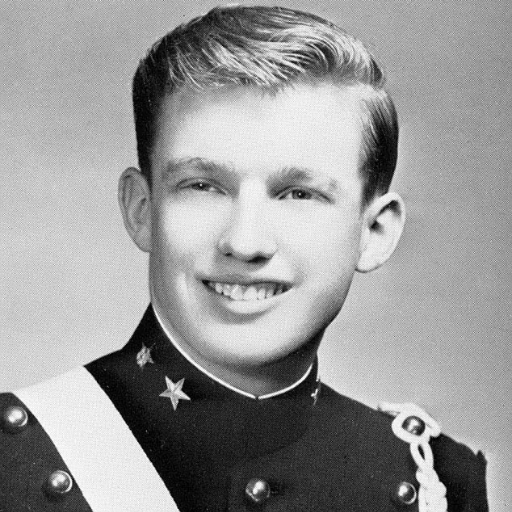
Barron Trump is the eldest son of former President Donald Trump, but he is rather quiet in the political and public affairs of the Trump family. In contrast to his older siblings, he has managed to navigate around the politics of the day, leading a largely private life devoting most of his time to education and his other activities. Hitherto, Barron has had no direct involvement in the electioneering activities of his father’s political campaigns, business activities, or dealings. The family reportedly has also shielded him from the public eye and, while rearing him, surrounded him with the love of family which was all he needed. Rather, Barron’s role is more visible in important moments during the family when he attends in support of his family without being a loud active member of public policies or politics.
Barron’s Life in the Public Eye
While most of Trump’s children are known and sought after, Barron Trump prefers to stay out of the spotlight as such. Yet events such as adorned state events or his parent’s international travels had him placed alongside his mother and father on many occasions. The general public suspects many activities in which Barron may be a part but primary sources of this type, even if they were available, are not because the Trump family indeed respects the privacy of the household. Regardless of the attention he grabs from the public when out in the open, the family of Trump has always been resolute in protecting their son from political and media onslaught so that he can concentrate on his studies and other personal matters. This pr- government strategy goes hand in hand with Melania’s quote as many Kushners share the same view, that is the case with Barron growing up in a highly politically charged atmosphere.
Donald Trump’s Influence on Barron
Like all fathers, I have tried my best as Donald Trump to give Barron tranquility and security in a rather turbulent public emotional environment. Considering my position as an important person in the world of politics and business, Barron does not have a different Lifestyle due to this as such. With lots of effort and patience, I try to shape his world so that he does not become numb to the colossal weight of being in the public eye due to his educative pursuits and his pursuits alike. Barron has been able to enjoy his childhood while having family to care for him rather than constant political stress thanks to protection being one of the pillars of our strategy. I do not shape him or guide him through political affairs for now considering his age. I rather focus on how he has to be resilient and work hard to achieve any meaningful success in political life which I strive for.
Barron’s Future Prospects
Considering the non-traditional childhood and adequate isolation from the outside world Barron Trump has enjoyed, his future does look bright and bodes well. Inherent to every high-profile teenage member of any family, Barron’s life will be a marriage of certain technical and personal details worth paying attention to:
Professional Education and Career: Barron’s education is broad-based so he should not be bound to any one sphere of business, law, or technology. Some parameters worth considering here include the availability of advanced educational infrastructure and access to industry know-how with experts’ guidance.
Public Life and Media Dependence: A timely controlled media strategy will be important for Barron if he participates in public life. It will include the management of his public activities and entering social media changes to form his public image which will coincide with his watermark and that of the family.
Fusion and Leadership: Barron could take advantage of the leadership traits the Trump family might have lavished on him. Central to this would be acquiring communication, decision-making, and managing public perception, and the required responsibilities that come with leadership roles and pressure.
Having these aspects in mind together with his individual noticeable qualities and interests, Baron can set his expectations high and achieve a lot in the future irrespective of whether he decides to participate in active political activities or not.
What Are the Prospects for Donald Trump’s Political Comeback in 2024?
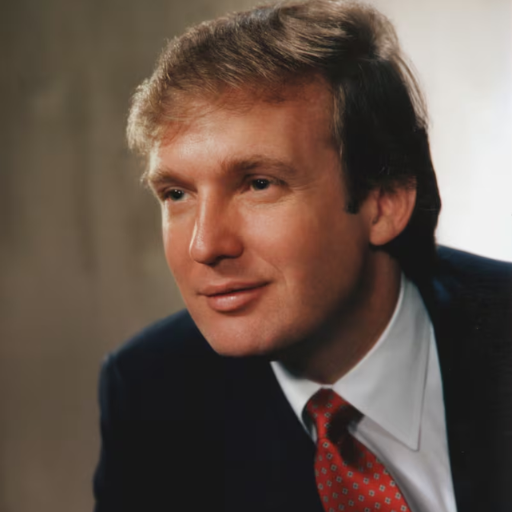
The possibilities for a renewed political career for Donald Trump are based on several political and social aspects. First and foremost, there is the question of whether he can still rally the Republican base, as during his previous presidency he controlled significant portions of the party’s direction and policies. Just as crucial is Trump’s willingness and ability to be flexible as the political context changes, including the changing demographic of voters and public opinion. The analysis of these key swing states and the level of support from these voters would be central in evaluating how effective he would be. Besides, bringing Trump’s new media approaches that seek to overturn perceived mainstream views and attract different sections of the electorate is vital. Emphasizing those channels that his supporters use, solving such key issues as employment and the issues of national security would strengthen his campaign significantly. In the end, the restoration of Trump’s political career depends on the achievement of the party’s goals, the efficient use of resources, and the turning around of the public image to move away from earlier hurdles.
Trump’s Strategy for the 2024 Presidential Election
To ensure success in the 2024 Presidential Election, Trump has devised a well-planned strategy based on several key factors of political analysis and incorporation of top sources. First of all, Trump is supposed to target regaining his position in the Republican Party by channeling the support of the party’s base and the undecided voters. To maintain his image and directly discuss key voter concerns mainly on the economy, health care, and immigration, he will continue to undertake jigs and public addresses where he sees fit and necessary.
He has built rapport with his followers through a considerable portion of his strategy that emphasizes social media and other non-traditional media outlets to overshadow conventional media reporting. This means that his chances of being biased in his policies are increased since they will be able to communicate more directly with their supporters. Trump’s campaign will also seek to benefit from the current administration’s leadership discontent by presenting himself as a solution to people’s grievances. For instance, he may highlight the tax breaks and deregulation policies he initiated during his first presidency.
Additionally, President Trump will likely leverage key strategic endorsements and build coalitions with those whom he shares similar political ideologies with, thus extending his reach further into important swing states. Targeting the recruitment of volunteers and active voters within key demographic groups enables the campaign to raise turnout in crucial population segments that are critical to winning elections. All in all, the effectiveness of this strategy rests on a unified campaign that synthesizes what has worked in the past with new and disruptive approaches. His final goal would be to broaden his political base and win the elections in 2024.
Challenges and Opportunities in a Biden or Kamala Harris Era
I consider the challenges and opportunities concerning a potential Biden and/or Kamala presidency through several lenses to arrive at a more definitive conclusion. For one, the unification of the country including the struggle to restore some level of bipartisanship in a highly fragmented political space is seen as both an enormous challenge and an enormous opportunity for the president’s administration. Furthermore, because of the goals they have in place, such as combating climate change, there are enormous doors towards growth especially in the renewable energy sector and sustainable infrastructures, allowing for ample market opportunities.
Still, these policies have to be implemented because of the barriers, for instance, the expected resistance from the fossil fuel-based industry as well as political gridlock. With regards to the implementation of their policies, it seems like they are planning to tackle huge issues such as wealth disparity through reforms in taxation and the healthcare systems, however, it will be easier said than done to provide adequate tools for such social change. In terms of foreign policy, even though it will be necessary to do this carefully due to the current situation, there are ways to boost the international order quite well by coordinating with interrelated parties and repositioning as a leader on the global stage.
At the end of the day, a lot will boil down to the president’s ability, or that of Kamala Harris for that matter, to do these things in light of policy implementation, legislative pressure as well as political shifts both within the domestic sphere and globally.
Impact of the COVID-19 Pandemic on Trump’s Campaign
The campaigning activities for the re-election of Donald Trump faced the dual impact of COVID-19 – pandemic circumstances and relative opportunities. The major one was the change in campaign technique since the trump rally events had to be limited in number of participants due to health restrictions and therefore shifted to virtual rallies or house parties, which would keep the voters entertained. The change made clear how the need to execute effective campaigns is dependent on the presence of strong content and sound delivery technologies.
Also, the pandemic raised the level of importance of a message which can be either about what needs to be done regarding the healthcare function or how the economy is going to be dealt with. How Trump responded to the breakout of the pandemic was more of a matter for the people’s television rather than his management of the country and made people’s confidence in him drop, negatively influencing the perception polls about his capability. This creates the requirement for political leaders to have developed crisis management strategies as well as health communication blueprints to oversee any challenging situations.
The recovery concerning unemployment and the closure of businesses induced by the pandemic also had to refocus on negative trade policies for economic recovery. This required providing sufficient attention to economic policies which included those aimed at unemployed citizens as well as those focused on producing economic stimulus and assisting small businesses. These are technical parameters that needed to be well structured to deal with short-term objectives as per the action plans but also in a way that is constructive to the overall recovery structure in the long term.
In conclusion, the pandemic further necessitated the increasing use of adaptive voter outreach tactics such as mail-in voting and the expansion of absentee ballot access. Such a demographic change necessitated a quick change of campaign approaches towards registration and voter mobilization consistent with the technical logistics of ensuring safe and secure voting. By effectively managing these intricacies, it ensured that voter participation levels were maintained whilst improving the effectiveness of campaigns when operating in the risky time presented by the COVID-19 pandemic.
References
Frequently Asked Questions (FAQ)
Q: What were the early ambitions of young Donald Trump?
A: Young Donald Trump, known for his ambition from a young age, was deeply influenced by his father Fred Trump’s real estate business. Donald J. Trump aimed to expand and diversify the family business, catapulting it into a larger empire.
Q: How did Donald Trump’s early business ventures influence his political career?
A: Trump’s first major business successes in real estate and branding set the stage for his political career by building his reputation as a dealmaker and leader. These experiences influenced the strategies he later used during the Trump campaign.
Q: What role did Melania Trump play in Donald Trump’s political journey?
A: Melania Trump supported Donald J. Trump throughout his political journey, including his run for president and tenure as the 45th president of the United States, offering both public support and private counsel.
Q: How did Trump’s loss in the 2020 presidential election impact his future ambitions?
A: Despite Trump losing the 2020 presidential election to Joe Biden, Donald Trump has hinted at a potential political comeback. He has remained active in politics, laying the groundwork for the 2024 campaign.
Q: What are the key factors that define Trump’s political comeback strategy?
A: Trump’s big comeback strategy includes rallying support from his base, addressing key issues like abortion rights, and leveraging media platforms such as NBC News and Amazon.com to amplify his message.
Q: How do customer reviews and public perception affect Trump’s political image?
A: Customer reviews, or public perception, significantly influence Trump’s image. Positive reviews can enhance his public standing, while negative reviews can challenge his political ambitions and strategies.
Q: What did Trump promise during his early political campaigns?
A: During his early political campaigns, Trump promised to revive the American economy, secure borders, and enact policies that align with conservative values, which resonated with many voters.
Q: How does the Republican National Convention play into Trump’s political plans?
A: The Republican National Convention is a critical platform for Trump to solidify his influence within the Republican Party, gather support for his political agendas, and potentially announce his candidacy for future elections, including the 2024 campaign.
Q: What are Donald Trump’s views on current U.S. political issues?
A: Donald Trump frequently shares his views on U.S. political issues, often criticizing the policies of Joe Biden’s administration. He focuses on topics such as economic policies, immigration, and national security, which are pivotal in shaping his political narrative.




